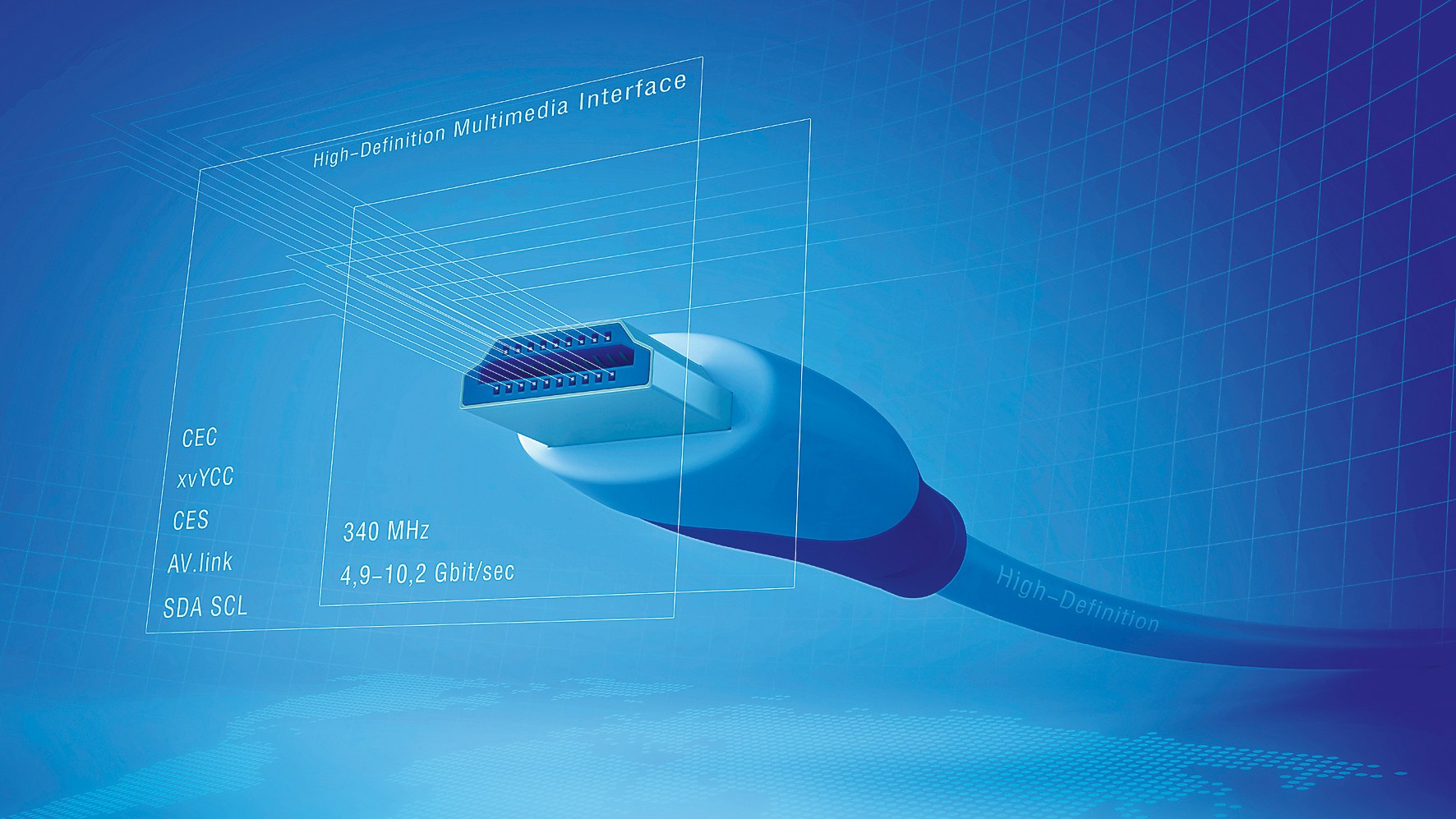Cable Power: New HDMI version fixes the TV cable's biggest problem
Cable Power feature set to end issues for longer lead setups

Hello, Cable Power! The end of messy cable trails for home cinema enthusiasts could be in sight, following an amendment to the new HDMI 2.1a standard that allows for a new way to send power through a lead.
Up until now, those running passive cables from their TVs or receivers over 3m / 10 feet would often experience signal degradation or stability issues when viewing higher-bandwidth HDMI 2.1 content.
The only options for those looking to watch content needing the full 48Gbps of an Ultra High Speed-rated cable – think movies featuring Dolby Vision and Dolby Atmos in TrueHD or 8K content – was to rig up an active HDMI 2.1 cable with independent power from another attached cable.
That all changes with the new HDMI 2.1a Amendment 1 specification released yesterday by the certification body HDMI Licensing.
The revision includes a feature called “Cable Power”, which will enable source devices such as game consoles and streaming boxes to provide additional power allowing longer HDMI cables to maintain a strong signal.
Both cable and source devices will need to support Cable Power in order for it to work, and you’ll also need to make sure your cable is plugged in the right way, as the feature only works in one direction.
For those worried that their existing hardware won’t be able to make use of the feature, the good news is that Cable Power compatible cables are set to offer optional USB Micro-B or Type-C connectors for source devices, allowing them to utilize the extra power that will be made available.
Sign up for breaking news, reviews, opinion, top tech deals, and more.
The bad news is that the feature looks likely to require special chips on source devices for it to work, meaning that it’s unlikely your existing gear will be able to be made compatible through a firmware update.
But it means that if you want to use one of the best AV receivers in one room to feed video to the collection of 4K TVs and 8K TVs you've got spread more than 10 feet away all over the house, now you can.
Analysis: Another big barrier for 8K and 120Hz is toppled
From richer, uncompressed 4K Blu-Ray movies, to faster framerates and the sonic majesty of Dolby Atmos in TrueHD, we’ve been highlighting the game-changing benefits of HDMI 2.1 for some time on TechRadar.
Tapping into all that goodness has been easy enough if you have a straightforward TV or PC setup, but if your hardware needs to be placed further away from your display – particularly for those using projectors – it’s unlikely you’ve been able to fully immerse yourself into the world that 48Gbps cables have opened up.
With 8K video and 4K 120Hz gaming now primed to enter the mainstream and even more demands being placed on bandwidth, the new Power Cable feature is very much a timely one.
The only real downside to the news is the likelihood of needing new hardware to reap the benefits that HDMI 2.1a and Cable Power bring, with the news likely to sting for next-gen console owners looking to experience higher frame-rate gaming on long-run cable setups. But perhaps the long-rumored PS5 Pro will include this feature as standard.

Kevin Lynch is a London-born, Dublin-based writer and journalist. The author of Steve Jobs: A Biographic Portrait, Kevin is a regular feature writer for a number of tech sites and the former Technology Editor for the Daily Mirror. He has also served as editor of GuinnessWorldRecords.com and has been a member of the judging panel for the BAFTA British Academy Video Game Awards. Alongside reviewing the latest AV gear, smartphones and computers, Kevin also specialises in music tech and can often be found putting the latest DAWs, MIDI controllers and guitar modellers through their paces. Born within the sound of Bow Bells, Kevin is also a lifelong West Ham fan for his troubles.